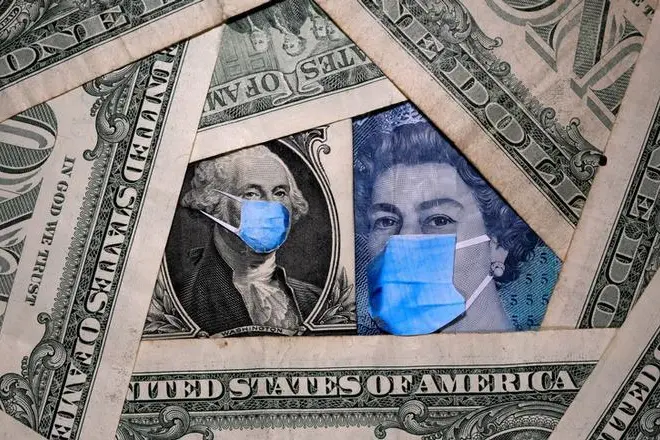PHOTO
(The opinions expressed here are those of the author, a columnist for Reuters.)
ORLANDO, Fla. - If dollar bulls had grown complacent that the relentlessly hawkish shift in Fed expectations recently would extend its rally for a few months more, they got a major wake-up call last week from the ECB.
Unthinkable only a few weeks ago, the door to a euro zone interest rate hike this year is now open after European Central Bank chief Christine Lagarde on Thursday acknowledged that inflationary pressures are unlikely to ease in the near term, noting: "The situation has indeed changed."
This, indeed, changes the situation for the FX market.
The euro's status as a perma-funding currency is over, or close to it. With one of the world's most dovish central banks no longer so dovish, the upside for the euro could be considerable.
But after years of negative interest rates, a more bloated balance sheet than the Fed's or Bank of Japan's, and guidance from Lagarde less than two months ago that a rate hike this year was "very unlikely", how deep does this new-found hawkishness run Could another policy mistake be looming
This is the crossroads hedge funds and speculators on the U.S. futures markets find themselves at.
The latest Commodity Futures Trading Commission data for the week ending Feb. 1 show that funds trimmed their net long euro position to 29,716 contracts from the previous week's 31,560.
Current euro positioning is close to its most bullish in almost six months, but precedes the ECB meeting, and can easily be extended. Funds built up considerably bigger euro longs in 2017, 2018 and 2020, and will do so again if they think the ECB will walk the talk on rates.
Euro money markets are now betting on 25 basis points of rate hikes by the ECB's Sept. 8 meeting, and 50 bps by December, which would bring the deposit rate up to 0% by year-end. Sources told Reuters that some ECB policymakers even wanted to start tightening policy last week. urn:newsml:reuters.com:*:nL1N2UH05R
The euro jumped 1.2% against the dollar on Thursday, its best day since March 2020, and rose 2.7% on the week, its best week since March 2020. Excluding the pandemic-fueled gyrations of nearly two years ago, it was the euro's best week since 2016.
Deutsche Bank on Thursday closed its short euro trade and advised clients to go long against the dollar, arguing that Lagarde "clearly signaled a pivot from slow-moving calendar-based guidance to something far more active."
Several other banks immediately changed their ECB forecasts too. urn:newsml:reuters.com:*:nL8N2UF2C7
If the euro's near-term outlook against the rested solely on the ECB's volte-face, perhaps the only debate might surround the extent of its gains. But in foreign exchange there is always the other side of the trade to consider, in this case the dollar.
The U.S. rate outlook was also thrown a curve ball last week, in the shape of a blowout employment report which showed almost half a million new jobs and surging wage growth in January, and massive upward revisions to the previous two months' job growth. urn:newsml:reuters.com:*:nL1N2UE33N
The U.S. money market curve is now fully pricing in five quarter-point hikes this year, and a 35% chance of a sixth. Maybe Bank of America's bold call for seven increases is not so outlandish after all.
This could inject new life into the dollar, which had started to drift from last week's 19-month high against a basket of currencies even before the ECB surprise on Thursday.
Funds had already started to cut their bullish dollar bets. Last week's overall net long position worth $10.3 billion is the smallest since September, and about half the $20 billion or so it had been from mid-December through mid-January.
As with the euro, positioning is not stretched. As with the euro, there is plenty room for speculators to add to their longs again and bet on it appreciating.
(The opinions expressed here are those of the author, a columnist for Reuters.)
(By Jamie McGeever) ((jamie.mcgeever@thomsonreuters.com; +1 (407) 288-5607; Reuters Messaging: jamie.mcgeever.reuters.com@reuters.net))





















